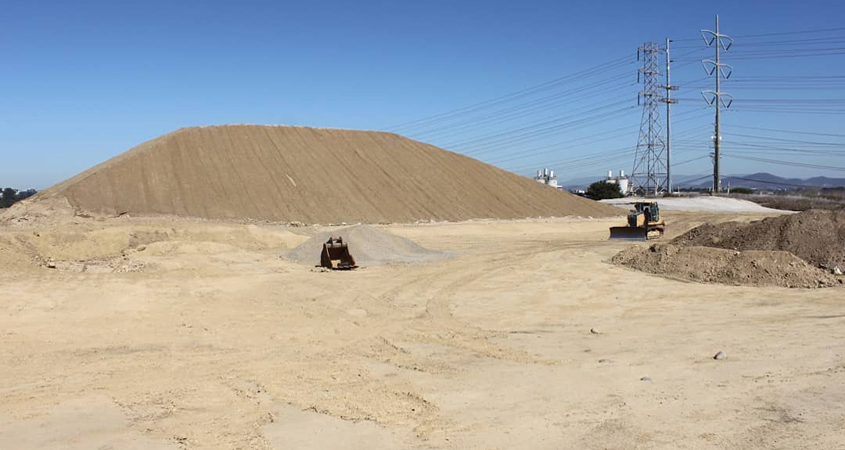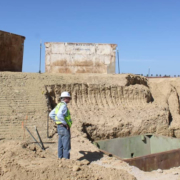Pre-construction activities at the North City Water Reclamation Plant and the future Pure Water Facility are underway as part of Phase 1 of the Pure Water San Diego program. More than 80,000 cubic yards of soil have been moved to date during initial site work, the equivalent of approximately 25 Olympic sized swimming pools.
Last month, the San Diego Regional Water Quality Control Board adopted an order granting a National Pollutant Discharge Elimination System, or NPDES permit, to the City of San Diego to add purified water to the Miramar Reservoir for Phase 1 of Pure Water San Diego. The approval is a major milestone for the program.
NPDES permits contain discharge limits, monitoring and reporting requirements, and other provisions to ensure water quality and public health. The NPDES permit issued to the City is the first for a reservoir augmentation project in the state of California.
By implementing Phase 1, the City will be able to produce and store 30 million gallons per day of local water supplies and decrease its reliance on imported water.
Pure Water San Diego Phase 1 includes several projects

More than 80,000 cubic yards of soil have been moved to date during initial site work on the Pure Water San Diego project, which is the equivalent of approximately 25 Olympic sized swimming pools. Photo: City of San Diego
Phase 1 includes a series of pipelines and facilities to convey purified water to Miramar Reservoir. Adding the purified water to Miramar Reservoir will increase the reservoir’s beneficial use and optimize protection of water quality. The purified water will blend with the City’s imported sources and be treated again at the Miramar Water Treatment Plant and distributed to the public.
The purified water distribution area will include the portion of the City of San Diego that receives potable water from the Miramar Water Treatment Plant in addition to the City of Del Mar.
Phase 1 of Pure Water San Diego includes several projects: the Morena Pump Station and Pipelines, the North City Water Reclamation Plant Expansion, the North City Pure Water Facility, and the North City Pure Water Pump Station and Pipeline.





